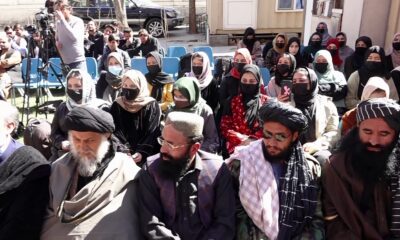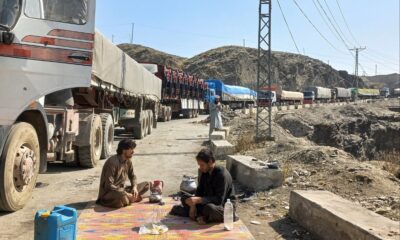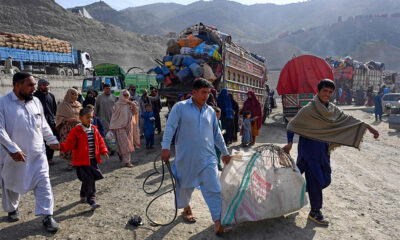Business
IEA orders all government entities to procure domestic goods over imported products

Under the guidance of the Deputy Prime Minister for Economic Affairs Office, a meeting aimed at bolstering the industrial sector and supporting locally manufactured goods was held at Marmarin Palace on Monday.
Officials from key ministries, including finance, interior, industry and commerce, economy, the general directorate of intelligence, and representatives from the private sector participated.
Significant decisions were made to strengthen the domestic industrial landscape. The Afghanistan Chamber of Industry and Mines will formally present domestic products to the Tariff Committee, which will follow a meticulous process of assessing quality, quantity, and pricing. The Tariff Committee, which is made up of officials from the general directorate of intelligence, Afghanistan Food and Drug Authority, and Afghanistan National Standard Authority, will determine import tariffs so as to ensure domestically made goods are prioritized on the local market.
Their findings will be reported to the Office of the Deputy Prime Minister for Economic Affairs. Furthermore, in alignment with Resolution No.19 of the Cabinet of the Islamic Emirate of Afghanistan, all government institutions are mandated to prioritize the use of domestic products in their procurement processes. This commitment extends to cases where the quality of domestic products may lag behind foreign counterparts by 10 to 15 percent.
Government entities are directed to maintain comprehensive lists of domestic products and seek quotations accordingly during procurement. To address security concerns for industrialists and investors and foster effective coordination, it was resolved that within three days, the Ministries of Interior, Finance, Industry and Commerce, the General Directorate of Intelligence, and the Chambers of Afghanistan Trade and Investment and Industry and Mines will designate competent representatives to the Office of the Deputy Prime Minister for Economic Affairs.
Additionally, the Ministry of Industry and Commerce assumes the pivotal role of submitting product names, marks, and brands for anti-counterfeiting measures to the Office of the Deputy Prime Minister for Economic Affairs.
As a concluding mandate, the Tariff Committee, under the stewardship of the Ministry of Industry and Commerce, will comprehensively investigate the existing challenges related to invoice execution between the Chambers of Commerce and Investment and Industry and Mines.
Their findings and recommendations will be presented to the Office of the Deputy Prime Minister for Economic Affairs.
Business
Pakistan appoints 26 new jirga members for border crisis talks in Afghanistan
Customs sources have said trade suspension is causing an estimated daily loss of $3 million in bilateral trade
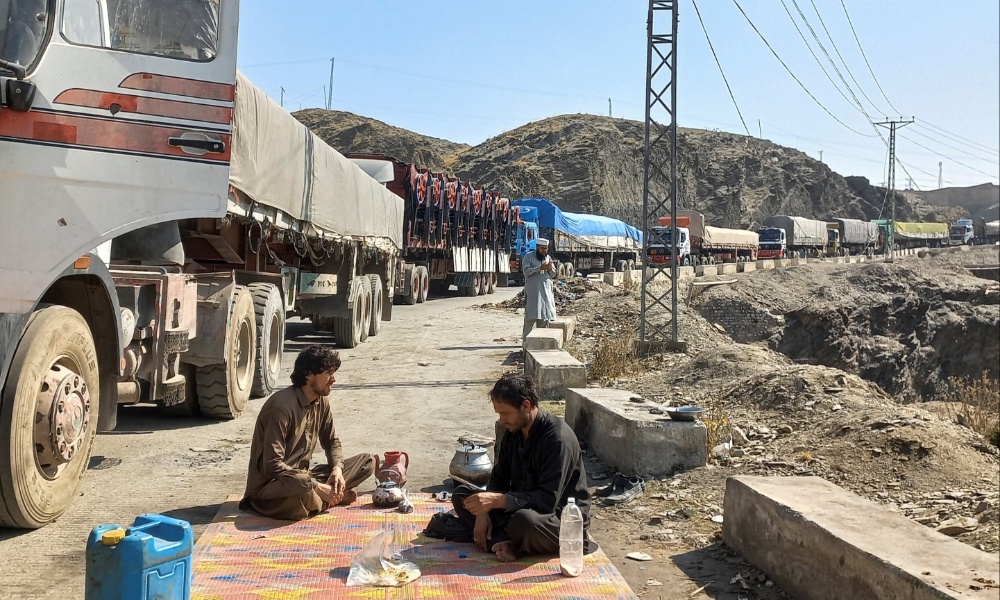
The Pakistani authorities have appointed a new 26-member jirga to hold further talks in Afghanistan over reopening Torkham border after the first round of talks hit a stalemate last week.
Torkham crossing was closed almost a month ago when Pakistan border officials opposed the reconstruction and renovation of a security check post on the Afghan side.
Sources told Pakistan’s Dawn news outlet that the new jirga would consist of 26 members, including experienced and influential tribal elders and local traders who are mostly members of Khyber Chamber of Commerce and Industry.
The source told Dawn talks could resume today, Monday March 17.
Torkham, a key border crossing between Pakistan and Afghanistan in the Khyber District of Khyber Pakhtunkhwa, remained closed for the 24th day on Monday amid rising concerns among traders of both countries who have suffered enormous losses due to the closure.
The crossing was closed on February 21 after escalation of tensions between the border forces on both sides. During subsequent exchanges of fire, three Afghan soldiers died while eight Pakistani paramilitary troops also sustained injuries.
Customs sources have said trade suspension is causing an estimated daily loss of $3 million in bilateral trade adding that over the first 20 days, approximately $60 million in trade was lost.
Torkham Border Crossing facilitates the daily movement of around 10,000 people to Afghanistan and is a key trade route between the two countries. Over 5,000 trucks, including those carrying perishable goods, are currently stranded, causing heavy financial losses.
Business
Uzbekistan investors show keen interest in mining and construction sectors
The Uzbek Ministry of Investment, Industry and Trade said last month that Uzbekistan and Afghanistan plan to increase the trade turnover to $3 billion.

Uzbek investors met last week with Afghanistan’s Deputy Minister of Commerce and Industry, Ahmadullah Zahid, and showed an interest in the construction and mining sectors in Afghanistan. The Ministry of Commerce and Industry (MoCI) said in a statement after the meeting that the Uzbek delegation had been assured that Afghanistan was secure and that there are vast investment opportunities in the construction and mining sectors.
Zahid reaffirmed the government’s commitment to supporting both domestic and foreign investors, ensuring a favorable business environment. He also said he hoped the investments would help boost Afghanistan’s economy and further strengthen economic relations between the two neighbouring nations. This comes after Uzbekistan opened a trade center in the northern city of Mazar-e-Sharif early this month.
The trade center provides Uzbek entrepreneurs with a platform to market their goods in Afghanistan.
Trade turnover between Uzbekistan and Afghanistan totalled $153.7 million in January 2025. This is 231 percent more against the same period last year ($46.3 million in January 2024).
The Uzbek Ministry of Investment, Industry and Trade said last month that Uzbekistan and Afghanistan plan to increase the trade turnover to $3 billion.
The latest development comes amid concerted efforts by both countries to boost their cross-border trade relations.
Business
Afghanistan records trade volume of $292 million via air corridors in 1403 solar year

Afghanistan’s Ministry of Industry and Commerce says that in the solar year 1403 (April 2024 to March 2025), goods worth $292 million were transported through air corridors.
Abdulsalam Jawad Akhundzada, the ministry’s spokesman, said that the value of exports through air corridors this year totalled $125 million and imports $167 million.
He added that the main export items were dried fruits, saffron, dried and fresh figs, jujubes, pine nuts and handicrafts, and the main import items were medicines and electronic devices.
Akhundzada said that exports happened through Kabul, Kandahar and Mazar-i-Sharif airports to the United States, Germany, China, India, Britain, South Africa, Austria, United Arab Emirates and some other countries.
-
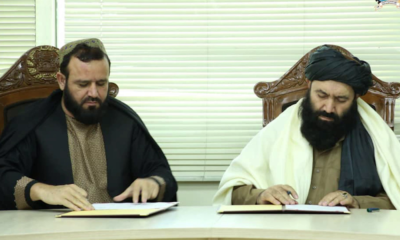
 Latest News4 days ago
Latest News4 days agoMoRRD signs deal for Wakhan road construction
-

 Regional5 days ago
Regional5 days agoPakistan military ends train standoff, says 21 hostages and four troops killed
-

 International Sports5 days ago
International Sports5 days agoBayern’s Harry Kane sets his sights on lifting FIFA Club World Cup trophy
-

 Latest News5 days ago
Latest News5 days agoPakistan Army claims Balochistan train attack orchestrated from Afghanistan
-

 Regional4 days ago
Regional4 days agoSyria keeps role for Islamic law in 5-year transition
-

 Latest News4 days ago
Latest News4 days agoIndia: Pakistan should not blame others for its own failures
-
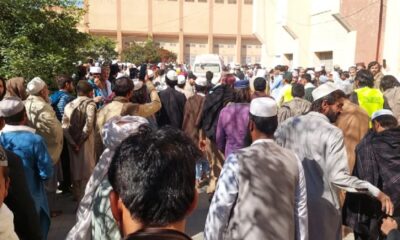
 Regional4 days ago
Regional4 days agoBlast in northwestern Pakistan mosque injures local Islamist party leader, three others
-
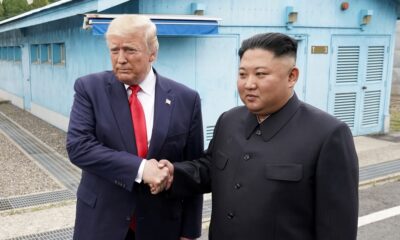
 World4 days ago
World4 days agoTrump says he still has good relations with leader of ‘nuclear power’ North Korea




